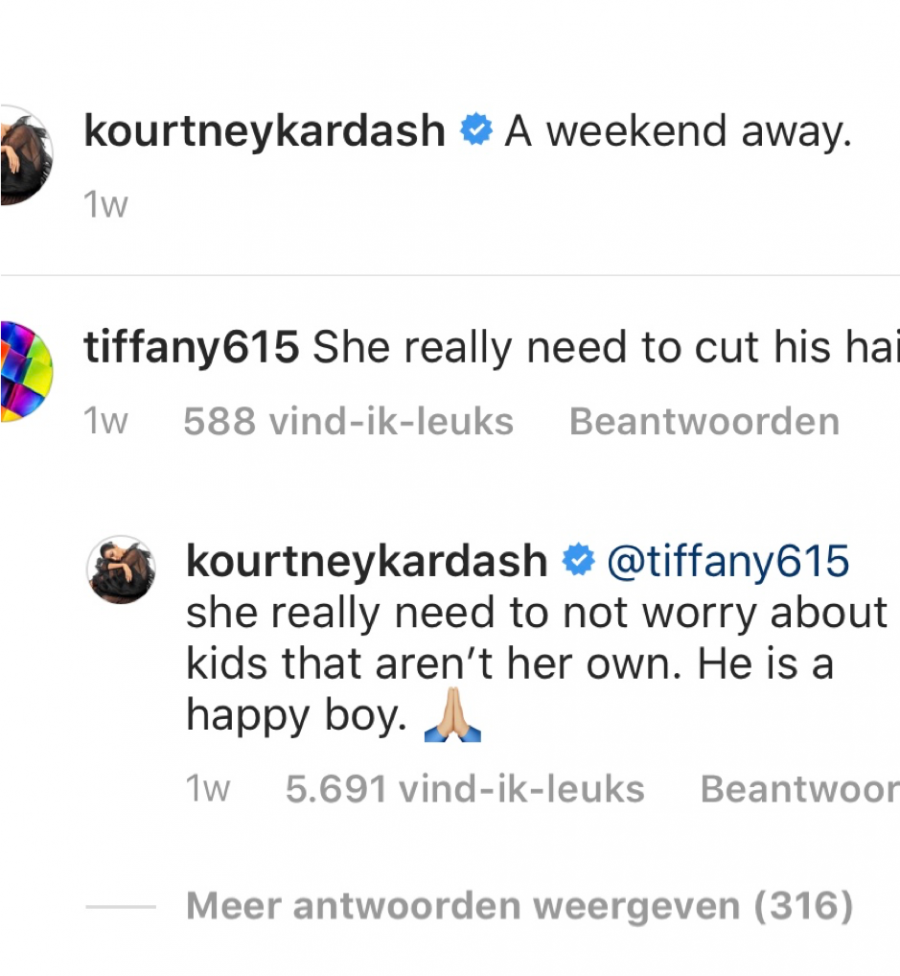
Mom-shamers vs. celebrities on Instagram
Mom-shamers have been around since forever and, sadly, social media has only helped amplify their voices. When it comes to getting especially vitriolic, they take aim at Hollywood moms. Whether they are telling celebrities how to feed and dress their children or criticizing them for enjoying a night out, the mommy-shaming brigade knows no boundaries.
According to Urban dictionary, "mom-shaming" refers to criticizing or degrading a mother for her parenting choices because they differ from the choices the shamer would make. Mom-shaming can be seen as a form of online bullying or trolling, i.e. a practice that aims to disrupt and upset as many people as possible, using whatever linguistic and behavioral tools are available (Phillips, 2015). In this article, we ask, how do these mom-shamers affect the Instagram accounts of celebrities?
Mom-shamers say you are doing it wrong!
According to Hollywood mom Hilary Duff, mom-shaming is like adult bullying about a topic everybody takes really seriously: parenting. While wanting to do everything right for love of your children seems obvious, there are many internet trolls out there who try to come at celebrity moms for doing it all wrong.
Scrolling around on Instagram, it is easy to find mom-shaming comments and there is one family in particular that sticks out: The Kardashian family. The Kardashian-Jenner women are all moms (except for model Kendall Jenner) and this is a family that has been in the public eye for many years now. They have their own reality show and millions of followers on Instagram. As their example shows, when you are sharing your life online and you become a mom, there is a whole new level of involvement in the things you share online.
The internet is filled with people who think they know how to parent someone else’s child better than the actual parents do, so, in that sense, it is no surprise that people have a lot to say about the way the Kardashians raise their children. Kim Kardashian, for example, a mother of four, has a five-year-old daughter, North, who she sometimes lets wear make-up. When she posted an Instagram photo of this, the mom-shamers came right at her: “Make-up again?”, “No make-up. She’s a little girl. You are going to be sorry. This is too much.” On North’s birthday, Kim straightened her daughter's hair for the occasion. According to the mom-shamers, this was not okay: “You are damaging that kid’s hair at so early age”, “Cute picture but your kid’s hair. She’s black Kim! Do you want black or white looking kids? A choice must be made my dear.”
The internet is filled with people who think they know how to parent someone else’s child better than the actual parents do.
Kourtney Kardashian, Kim's sister, who is famous for her part in the reality TV show has three children and is also a victim of the mom-shaming brigade. Given that she has over 85 million followers on Instagram and posts a lot about her children, the mom-shamers know how to find their way in the comment section. Mom-shamers especially criticize the hair length of her son Reign: “Trim that Girl’s hair”, “She really needs to cut his hair.”
But the Kardashians are not the only family in Hollywood dealing with this kind of online bullying. Shay Mitchell, a 32-year old actress famous for her role in the series Pretty Little Liars, recently became a mother. When she posted the first photo of her child on her Instagram with the caption "Never letting go…" she immediately got reactions like: “… Except when there’s a party to go to, right?! Disgusting… leaving your newborn only days after her birth.”

Mom-shaming: easy and anonymous
Being a nasty online troll is easy; the only thing you need is an account on any social media website, and you can immediately start bullying people. Intention can vary though: some people are honest and think they can help you with their advice and others are just deliberately mean. When it comes to trolls, one might think that the line between those acting in good faith and mischievous trolls is a clear one: that if one simply acted sensibly and followed the aphorism “don’t feed the trolls”, one would be safe. But it is no longer so easy (Reagle, 2015).
What is unique in the age of the Web is that people can comment from their living room, their office, or the street using text, images, audio, and video. This enables a degree of ubiquity and scale of commentary never seen before. Examining Kourtney Kardashian’s profile where she posts about her (long-haired) son Reign, we find posts like the one below where she preemptively tries to shut down the haters by saying: "Anyone with hair comments is absolutely jealous of these divine locks".
This statement did not stop trolls from offering their unsolicited opinions. Among the 13.000 comments on this post, there still negative ones that stand out. The negative comments are posted by private accounts with anonymous names like "DrDonkeyMonkey" or "Scaar45". The accounts don't show any personal information and have few followers (for example, DrDonkeyMonkey has 27 followers).

Proud shamers of mommy-shamers
The victims of this kind of online trolling are not ones to do nothing about it. Kourtney Kardashian is used to people commenting on her son’s appearance at this point, but previously she had clapped back at a mom-shamer in the comment section who said that “She really needs to cut his hair.” Kourtney fired back with: “She really needs to not worry about kids that aren’t her own. He is a happy boy” (see screenshot below). Having replied, Kourtney received a lot of backup from other moms: “That’s your opinion!” and “@kourtneykardash Could not have said it better myself.”

Other moms discuss mom-shamers on blog posts pointing out: “Parenthood is so incredibly hard, we are often full of self-doubt already, and then we have to face criticism from others. How great would it be if we all gave each other some grace and support instead?" Another celebrity mother who is there to defend herself and others is Chrissy Teigen – married to the famous singer John Legend. She even calls herself a “proud shamer of mommy shamers” and writes:
"I will never know why parents criticize others so harshly, knowing they'd go insane if they were on the receiving end ALLTHETIME. NO parent out there thinks they're perfect. I loathe these shithead commenters. Who would want to make someone feel horrible for fun?"
People have shamed Teigen for going out to dinner shortly after giving birth, for picking a female embryo during IVF treatments, and even for eating sugary cereal during pregnancy. Husband John Legend has even had to step up and defend her, saying that if you're going to shame her, you should shame him, too (Friedman, 2016). “I can see things coming a mile away,” Teigen revealed in 2016,
“I know that when I post something if she's in a car seat, I've got to be ready for the million people telling me she’s in the car seat wrong, even though she's in there correctly. At this point, I know what they're going to say before they say it. If I’m holding her while I’m cooking, or if I’m holding her within 10 feet of a stovetop, I’ve kind of just come to expect it.”
According to Reagle (2015), "the extent to which we develop healthy self-esteem is not related to the number of positive messages that are received but the ways that people respond to negative feedback. Learning how to tolerate the distress and grow from it is an important life skill. In this sense, self-esteem is understood as a positive self-regard because it allows people to know how to manage and use feedback".
Drama-seeking mommies
Mom-shamers know how to act and react in the comment sections of celebrities' posts. With social media amplifying their voices, people can see more drama happening online in a week than people back in the day could see in a lifetime of watching television. In the age of commenting, people are always performing on a stage, and much of it is sensational. The meaner the comment, the more sensation the mom-shamer is causing.
Elements of people's daily lives are shifting from the private to the public sphere. There is this kind of "safety" behind the screen where people think they can post mean comments without facing any consequences. As Hillary Duff said on the matter, mom-shaming is like adult bullying, it does have an effect on a person because you want to do everything right, you love your children.
It is an important life skill to know how to deal with this kind of negativity, and healthy self-esteem is related to your own response to negative feedback. No parent out there thinks they're perfect but, since there are people out there eager to make others feel bad for fun, moms should learn to be more resilient.
References
Friedman, M. (2016, July). 10 times Celebrity Parents were shamed for perfectly normal activities. Retrieved from Elle: https://www.elle.com/culture/celebrities/news/g28504/celebrities-react-m...
Phillips, W. (2015). This is why we can’t have nice things: Mapping the relationship between online trolling and mainstream culture. London: Cambridge.
Reagle, J. M. (2015). Reading the comments: Likers, haters, and manipulators at the bottom of the web. London: Cambridge.